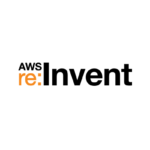I was listening to a Twitter space recently and the host had an interesting take: for the amount of money you would spend flying a speaker to an international conference (call it $5000, though of course the actual number varies depending on location, timing and more), you could record a great educational video and get it in front of many folks on Youtube.
Assume you spend $3000 on video production, and the CPM is $4 (hard to find solid numbers, but this post talks about rates in that range), you could put that video in front of half of a million people (1000 views/$4 * $2000). That’s a big number, certainly more than attend any conference.
As someone who is gingerly stepping back into work conference travel, who doesn’t like to spend time away from his home, who is a member of the flyless community, and who came into devrel in earnest during the pandemic, I’m sympathetic to that view point. It is more efficient to broadcast your message wholesale, whether that is with a blog post, webinar, or a video, than it is to talk to people retail at a conference booth, or even to give a talk to a hundred people.
But what I’ve learned is that there are real benefits to in-person conferences too: attention, prestige and feedback.
Attention
Think back to the last video you watched, especially if it was technical. How much of your attention did you give it? Perhaps 100% if following a tutorial. But perhaps substantially less if it was background noise or you were looking to learn a bit on the subject.
I’ve definitely “attended” online conferences where I was not paying attention. And I have never popped into a virtual conference “booth”, so I have no idea if the content there is compelling.
I’ve also seen folks at in-person talks on their phones or computers, to be sure, but it is not the rule.
Data is hard to come by, but I believe that folks that are more likely to pay attention at an in-person event. They have made more effort, so they are more committed (research finds “working hard can also make [things] more valuable”). There’s also more distance from the normal work task during an in-person conference. Attendees have far fewer distractions, and an expectation of attention. I think that focusing your attention on a speaker at a talk you are attending is the polite thing to do as well, and there are social norms pressuring folks to do that.
This attention makes an attendee at an in-person conference more valuable than a Youtube viewer.
Prestige
While not anyone can create a great video, anyone with a camera can make a video.
On the other hand, not everyone can buy a booth at a conference, attend one, or speak. There is a filter on everyone who is at an in-person conference. This filter disadvantages folks who can’t travel, have a disability, or have other constraints. But it improves the value of an interaction at a conference too.
Being able to pay for a booth or have a talk accepted in particular are signals of quality. They don’t equate with quality, as anyone who has sat through a vendorware conference presentation can attest, but there is some level of prestige that accrues to an organization by being at a conference. That’s one of the reasons companies pay to sponsor conferences; there’s value in being seen there. (Others might phrase it differently.)
Feedback
Feedback is the last, and in my mind, most valuable differentiator between in-person conferences and online educational activities.
At a conference, the opportunity for two way communication abounds!
Any time someone stops by a booth or asks a question after a talk, as an educator you have the opportunity to not just answer a question or address a comment, but to dig in and understand the person’s context. What do they do? Why are they asking that particular question? Is there an unstated assumption in their question?
You can and often do have ten minute conversations at a booth, and this qualitative, high bandwidth feedback from expensive software development professionals is valuable in learning about your market and seeing if your message resonates.
Contrast that with the limited q&a at an online conference or the comments on a video. Yes, that is also feedback, but it is far less nuanced, considered, and interactive.
Conclusion
The ready availability of high quality, intense feedback driven by back and forth communication is the killer feature of in-person conferences. I don’t see any way to replicate that right now online.
 I’m excited to be heading to AWS re:Invent this week. I’ve never been to Las Vegas (other than stopping at a Chipotle on the outskirts on the way to SoCal), so I’m looking forward to seeing the Strip. I’ve heard it’s a bit of a madhouse, but I did go to the Kentucky Derby this year, so we’ll see how it compares.
I’m excited to be heading to AWS re:Invent this week. I’ve never been to Las Vegas (other than stopping at a Chipotle on the outskirts on the way to SoCal), so I’m looking forward to seeing the Strip. I’ve heard it’s a bit of a madhouse, but I did go to the Kentucky Derby this year, so we’ll see how it compares. I attended
I attended  I’m excited to be speaking at
I’m excited to be speaking at  I am excited to go to
I am excited to go to 